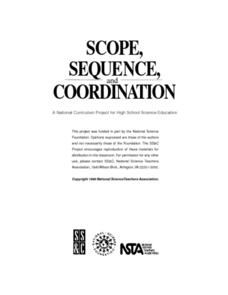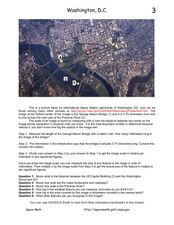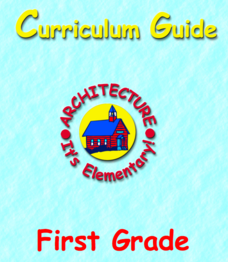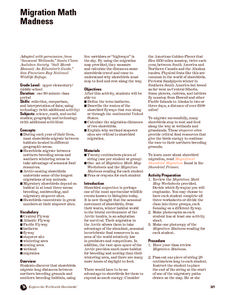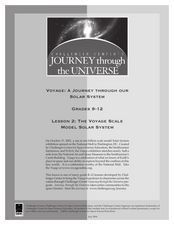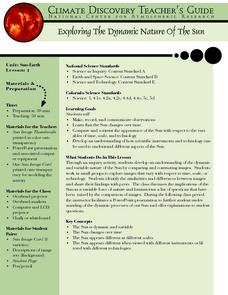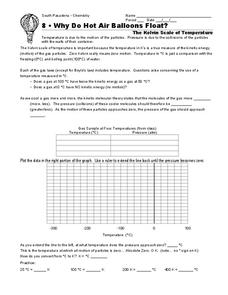Curated OER
Evolution and the Fossil Record
Engage young biologists with four laboratory activities that explore the fossil record. Learners examine fossil images, a fossil kit, the rock record, and geologic time scale. They even experiment with the oxygen production of an Elodea...
Curated OER
Fossils and Lithologic Units
Practicing paleontologists map the geologic time scale, simulate the formation of sedimentary rock, and analyze fossil data. Instructions for four activities and five assessment choices are provided for the teacher. This comprehensive...
Institute of Electrical and Electronics Engineers
Shake it up with Seismographs!
Shake things up in your STEM or earth science classroom when you have small groups construct their own seismographs. A reading assignment on the history of seismographs, the Richter scale, and current technology sets the stage for the...
Curated OER
Mapping
Introduce middle or high schoolers to topographic maps with this PowerPoint. After a review of longitude and latitude, display and describe contour lines and intervals. Also explain map scale. This is a useful presentation for a social...
Curated OER
Washington D.C. from Space
In this Washington D.C. from space worksheet, learners use a picture generated by the International Space Station and they find the scale of the image. They determine the actual size of features in the image, they find the distances...
Consortium for Ocean Leadership
Measure for Measure
How does your class measure up? Young scientists create a scale drawing of the JOIDES Resolution in a collaborative activity. The lesson incorporates mathematical principles with deep-sea exploration to focus on enhancing measurement...
American Institute of Architects
Architecture: It's Elementary!—First Grade
Build an interest and appreciation for architecture in your young learners with this fun 10-lesson art unit. Engaging children in using their five senses, the class first observes the environment around them, paying...
Curated OER
Geological Time Scale
In this geological time worksheet, student use a geologic time scale to understand the difference between eons, eras, and periods. Then students complete 2 short answer questions.
TryEngineering
What is a Nanometer?
Exactly how small is a nanometer? Scholars investigate the scale of a nanometer by measuring classroom objects and converting these measurements to nanometers.
Virginia Department of Education
Solar System Model
How many planets can you name? Did you get all 13 in our solar system, including the dwarf planets, or were you surprised when you read there are 13 planets? The lesson helps scholars understand the scale of the universe including the...
Prince William Network
Migration Math Madness
A great way to incorporate math into life science, this activity has learners measure migratory routes on a map and calculate the actual distance that shorebirds on the routes would cover. Learners compute the distance covered in both...
Curated OER
Newton's Second Law
Three memorable activities build on each other to give physics masters a firm grasp of Newton's Second Law. Pupils play with a lab cart on a flat surface and on an incline to confirm that force is equal to mass times acceleration. In the...
Curated OER
The Voyage Scale
Young scholars identify how models are powerful tools of exploration and that the sizes of the planets and distances between the planets in the Solar System span a large range. They make a sign for each planet they have created in the...
Curated OER
Math in Science-Using Temperature Scales
In this temperature scales worksheet, students are given the equations to convert from Fahrenheit to Celsius and from Celsius to Fahrenheit. They apply to equations and convert given temperatures.
Curated OER
Earthquake Power
In this earthquakes worksheet, students learn about the measurements of earthquakes on the Richter scale. They answer six questions about the magnitudes and sizes of earthquakes using two tables of data about earthquakes and the Richter...
Curated OER
Comparing the New Madrid and San Andreas Fault Zones
In this faults worksheet, students use an earthquake reference sheet to find the numbers for a modified Mercalli and Richter scale. They compare the San Andreas Fault zone and the New Madrid fault zone on the United States map. They...
Curated OER
The Kelvin Scale
In this Kelvin scale learning exercise, students read about the relationship between the Celsius scale and the Kelvin scale. They are given the equations to convert from one scale to the other. They find the equivalents for temperatures...
Curated OER
Diversity of Life: Geologic Time Scale
Students investigate the history of Earth by creating a geologic time scale. In this Earth History lesson, students practice sequencing events in their life as a way to get familiar with creating a time scale. Students...
TryEngineering
Exploring at the Nanoscale
Discover a world too small to see. In the lesson plan, young scientists learn about nanotechnology and brainstorm ideas for new applications of it. They perform an activity to determine how surface area changes when objects are made...
Curated OER
AP: Chapter 25: Phylogeny and Systematics
As a review or note taking guide, this resource wraps up a unit on the tree of life. Biology bigwigs define phylogeny and answer questions about the subsequent classification of organisms. The worksheet takes a straightforward and...
Curated OER
Exploring the Dynamic Nature of the Sun
Students compare and contrast images of the sun taken at different times and viewed at different scales. They record their observations in a journal and create a graphic organizer to help analyze their observations.
Curated OER
Atomic Weight
In this atomic weight activity, students follow directions to complete an experiment with nuts, a scale, and calculator to calculate atomic weight. Students then answer 6 questions.
Curated OER
Kelvin Temperatures and Very Cold Things!
In this Kelvin temperature scale worksheet, high schoolers solve 6 problems using the equations for the conversion of Centigrade to Fahrenheit and Kelvin to Centigrade. They convert between Fahrenheit and Kelvins and Centigrade and Kelvins.
Curated OER
Why Do Hot Air Balloons Float?
In this gases learning exercise, high schoolers read about the Kelvin scale of temperature, they answer 3 fill in the blank questions about the relationship between temperature and pressure and they plot the temperature and pressure of...

